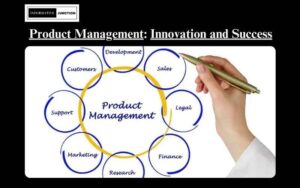Financial Planning for Small Businesses
In today’s dynamic business landscape, the success of small enterprises hinges on more than just a great product or service. One of the critical factors often overlooked is financial planning. Businesses, irrespective of their size, need a robust financial strategy to thrive in the competitive market. In this comprehensive guide, we will delve into the intricacies of Financial Planning for Small Businesses, exploring its significance, key components, and practical tips to ensure sustained growth.
The Importance of Financial Planning
Financial planning lays the foundation for a small business’s success. It involves assessing the current financial status, setting realistic goals, and developing strategies to achieve them. Small businesses that neglect this crucial aspect often find themselves grappling with unforeseen challenges, leading to financial instability.
Proper financial planning provides a roadmap for decision-making, helping businesses navigate through economic uncertainties, unexpected expenses, and market fluctuations. It acts as a safeguard against financial pitfalls, allowing entrepreneurs to make informed choices that contribute to long-term viability.
Key Components of Financial Planning
1. Budgeting for Success
Creating a detailed budget is the cornerstone of effective financial planning. Small businesses must meticulously outline income and expenses, allocating resources judiciously. This process not only prevents overspending but also identifies areas where cost-cutting or investment is needed.
2. Cash Flow Management
Maintaining a healthy cash flow is vital for the day-to-day operations of a small business. Efficient cash flow management involves monitoring income and expenditures, ensuring that there’s always enough liquidity to cover immediate needs. Strategies like invoicing promptly and negotiating favorable payment terms with vendors contribute to a steady cash flow.
3. Risk Management Strategies
Every business faces risks, but a well-thought-out financial plan includes strategies to mitigate these risks. This can involve insurance coverage, diversification of investments, and contingency planning. By identifying potential threats and having contingency measures in place, small businesses can weather unexpected storms.
4. Investment Planning
Smart investments play a pivotal role in the financial success of small businesses. Whether it’s in technology, marketing, or personnel, strategic investments can lead to increased efficiency and profitability. A well-structured financial plan considers both short-term and long-term investment goals.
Practical Tips for Small Business Financial Planning
1. Regular Financial Check-ups
Just like physical health, financial health requires regular check-ups. Small business owners should review their financial status periodically, adjusting strategies as needed. This ensures that the financial plan remains aligned with the business’s evolving needs.
2. Consulting with Financial Experts
While small business owners are often juggling multiple roles, seeking advice from financial experts can provide invaluable insights. Professionals can offer guidance on tax planning, investment strategies, and overall financial management, empowering businesses to make informed decisions.
3. Embracing Technology
In the digital age, leveraging technology is key to efficient financial planning. From advanced accounting software to online financial management tools, small businesses have access to resources that streamline processes and provide real-time insights into their financial standing.
4. Building Emergency Funds
Unforeseen circumstances can put a strain on a small business’s finances. Having an emergency fund can act as a financial safety net during tough times. Setting aside a portion of profits for emergencies ensures that the business can continue to operate even in the face of unexpected challenges.
Implementing Financial Planning for Long-Term Success
Now that we’ve explored the key components and practical tips for financial planning, let’s delve into the implementation phase. Financial Planning for Small Businesses isn’t a one-size-fits-all approach. It requires customization based on the unique characteristics and goals of each business.
1. Setting Clear Financial Goals
Begin by defining clear and achievable financial goals. These could include increasing revenue, reducing expenses, or expanding into new markets. Setting specific, measurable, and time-bound goals provides a roadmap for the financial planning process.
2. Creating a Detailed Financial Statement
A detailed financial statement is the backbone of any financial plan. This statement should include a balance sheet, income statement, and cash flow statement. Analyzing these documents provides a comprehensive overview of the business’s financial health.
3. Establishing a Contingency Plan
No matter how well-prepared a financial plan is, unexpected events can still occur. Establishing a contingency plan involves identifying potential risks and outlining steps to mitigate their impact. This could involve insurance coverage, emergency funds, or alternative suppliers.
4. Regularly Updating the Financial Plan
The business environment is dynamic, and so should be your financial plan. Regularly review and update your financial plan to adapt to changes in the market, industry, or internal operations. This ensures that your business remains agile and resilient in the face of evolving challenges.
Conclusion
In conclusion, mastering Financial Planning for Small Businesses is non-negotiable for those aiming for sustained success. It goes beyond mere number-crunching; it’s about strategic decision-making, risk management, and creating a roadmap for growth. By investing time and resources into developing and maintaining a robust financial plan, small businesses can navigate the complex business landscape with confidence, ultimately unlocking the door to long-term prosperity. Remember, the key to success lies in proactive planning and a commitment to financial excellence.
Read More Informative Blogs on Informative Junction




